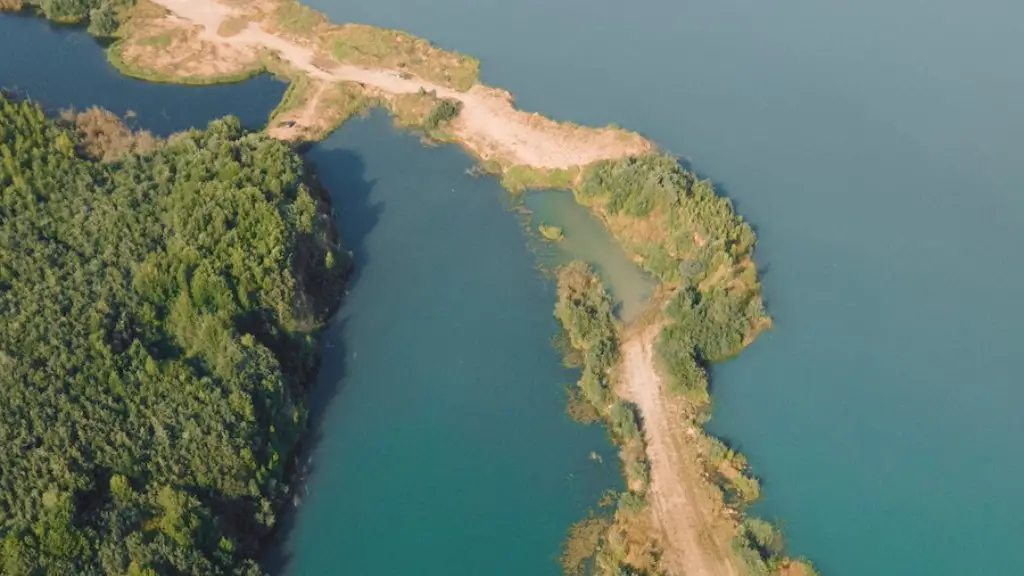The Nile river has been a critical part of Ancient Egyptian life and culture for thousands of years. It is the longest river in the world and runs through the countries of Egypt, Sudan, and Ethiopia. The river has been a source of food and a means of transportation for the people of Ancient Egypt for centuries. In addition, the river had tremendous religious significance for the ancient Egyptians. The Egyptians viewed the Nile as a god, and the river was thought to have great power and influence over their lives.
The Nile river provided an immensely beneficial environment for the people of Ancient Egypt. It provided a reliable source of water for drinking, fishing, and irrigation. This was incredibly important in a region that was often subject to droughts. It also created rich soil, enabling the growth of crops and plants. This allowed the people to have a steady, reliable food source to sustain their civilization.
The Nile was also the primary form of transportation during this time period. Boats were the primary means of transportation and trade for the Ancient Egyptians. This enabled them to stay connected with their neighboring countries and expand their empire.
The Ancient Egyptians heavily relied on the Nile for religious reasons. They believed that the fertility of the land was directly related to the Nile river. As such, the Egyptians held many ceremonies to honor and thank the river. They believed that the river provided them with life and prosperity, and wanted to honor it accordingly.
The Nile was so important that it formed the basis of the calendar in Ancient Egypt. The Egyptians divided their calendar year into three seasons based on the level of the river. This reflected their dependence on the river for their livelihood and subsistence.
The Nile had an immense impact on Ancient Egypt, from a political, economic, and religious standpoint. It provided a stable food source and a means of transportation for the Ancient Egyptians. It was also a formative part of their culture and religious beliefs. The Nile was a god for the people of Ancient Egypt, and its influence over the lives of the people can still be seen today.
Effects of the Nile on Agriculture
The Nile had an immense impact on Ancient Egyptian agriculture. It provided a steady water supply and created incredibly fertile soil. This made it possible to grow abundance of crops like wheat, barley, and flax. This enabled the people of Ancient Egypt to feed their families and have a consistent food supply. The Nile also provided a way of irrigating the land that otherwise would have been barren. This allowed the people to use their land optimally and produce even more food.
The Ancient Egyptians also used river and lake water to farm fish. This provided another dependable source of food for the Egyptians. Fish was a staple of the Ancient Egyptian diet, and the Nile allowed them to harvest large amounts of it on a regular basis.
In short, the Nile river had a drastic effect on the agriculture of Ancient Egypt. It created fertile soil, enabled irrigation, and provided abundant amounts of fish. This allowed the people to feed their families, ensuring the success of the empire.
Effects of the Nile on Political Power
The Nile was of great importance to the political power of Ancient Egypt. It provided a form of transportation that enabled the Egyptians to form relationships with their neighbors in Africa, Europe, and Asia. This enabled them to spread their power and have widespread influence. The Nile also allowed them to move their armies with ease, which allowed them to conquer other lands.
The Ancient Egyptians also formed their political structure based on the Nile. The river was divided into 26 slices, and these slices were given to different rulers and governors. This allowed the Egyptians to better organize the land and keep track of who was in control of which area. It also allowed them to keep better track of how their resources were being used.
Overall, the Nile river had an enormous impact on the political power of Ancient Egypt. It enabled the Egyptians to broaden their borders, keep better control of their land, and maintain relationships with their neighbors. This allowed them to build an empire that lasted for centuries.
Effects of the Nile on Religion
The Nile was also an incredibly important part of Ancient Egyptian religion. The Ancient Egyptians viewed the Nile as a divine being, and believed it had great power and influence over their lives. This belief was reflected in the religious practices of the Ancient Egyptians.
The Ancient Egyptians held many ceremonies and festivals in honor of the Nile. They believed that it was essential to keep the Nile happy, in order to keep the land fertile and prosperous. As such, there were many rituals and festivals dedicated to thanking the Nile for its blessings.
The Nile was also viewed as a source of wealth and prosperity. It enabled the people to live healthy lives and support their families. This was seen as a great gift from the gods, and the people were grateful for the blessings it bestowed upon them.
The religious significance of the Nile meant that it was the center of many of the Ancient Egyptians’ beliefs and practices. The deep reverence it was held in ensured that it had an immense impact on the culture and beliefs of Ancient Egypt.
Effects of the Nile on Trade
The Nile river was also an important part of trade in Ancient Egypt. Its waterways enabled the Egyptians to conduct trade with their neighbors in Africa, Europe, and Asia. This allowed them to spread their influence far and wide and enrich their empire.
The Ancient Egyptians used the Nile to transport goods and resources that they could not obtain on their own. This allowed them to get the materials they needed without having to go through the hassle of overland trade. The Nile was also a great source of income, as people from other countries would come and trade with the Egyptians.
Overall, the Nile was essential to the success of trade in Ancient Egypt. It enabled the Egyptians to acquire the resources they needed, and also allowed them to spread their influence throughout the world. This was essential for the success of the Egyptian Empire.
Effects of the Nile on Architecture
The Nile had a tremendous impact on the architecture of Ancient Egypt. Its waterways enabled the Egyptians to build massive monuments and temples along the shoreline. Pyramids and other grand structures were built to honor and celebrate the greatness of the river.
The Nile also enabled the Egyptians to build more complex structures with more elaborate designs. Its waterways enabled the Egyptians to transport large stones, which allowed them to create massive structures like the pyramids.
In conclusion, the Nile had an immense impact on architecture in Ancient Egypt. Its waterways enabled the Egyptians to build elaborate structures and transport heavy stones. This allowed them to construct some of the most impressive monuments the world has ever seen.
Effects of the Nile on Society
The Nile also had a major effect on the society of Ancient Egypt. Its water provided a reliable source of food and water for the Ancient Egyptians. This allowed them to have a stable diet and live healthy lives.
The Nile also enabled the Egyptians to sustain their culture and beliefs. Its religious significance meant that people from all over Egypt would come to the river to pay their respects. This allowed the different people of Egypt to come together and celebrate their shared culture and beliefs.
In short, the Nile had a huge impact on the society of Ancient Egypt. It provided a means of sustenance, enabled communication between disparate groups, and also allowed the Egyptians to sustain their culture. This was hugely important for the success of the empire.
Effects of the Nile on Technology
The Nile also had a major impact on the technology of Ancient Egypt. Its waterways enabled the Egyptians to construct better boats and other vessels. This allowed them to travel greater distances and trade more efficiently with their neighbors.
The Nile also enabled the Egyptians to invent more advanced tools and machines. This allowed them to carry out more complex tasks and build larger structures. This was essential for the success of their empire.
Overall, the Nile had an enormous impact on the technology of Ancient Egypt. Its waterways enabled the Egyptians to not only move goods and people efficiently, but also to invent more advanced tools and machines. This allowed them to generate wealth and prosperity for their people.





